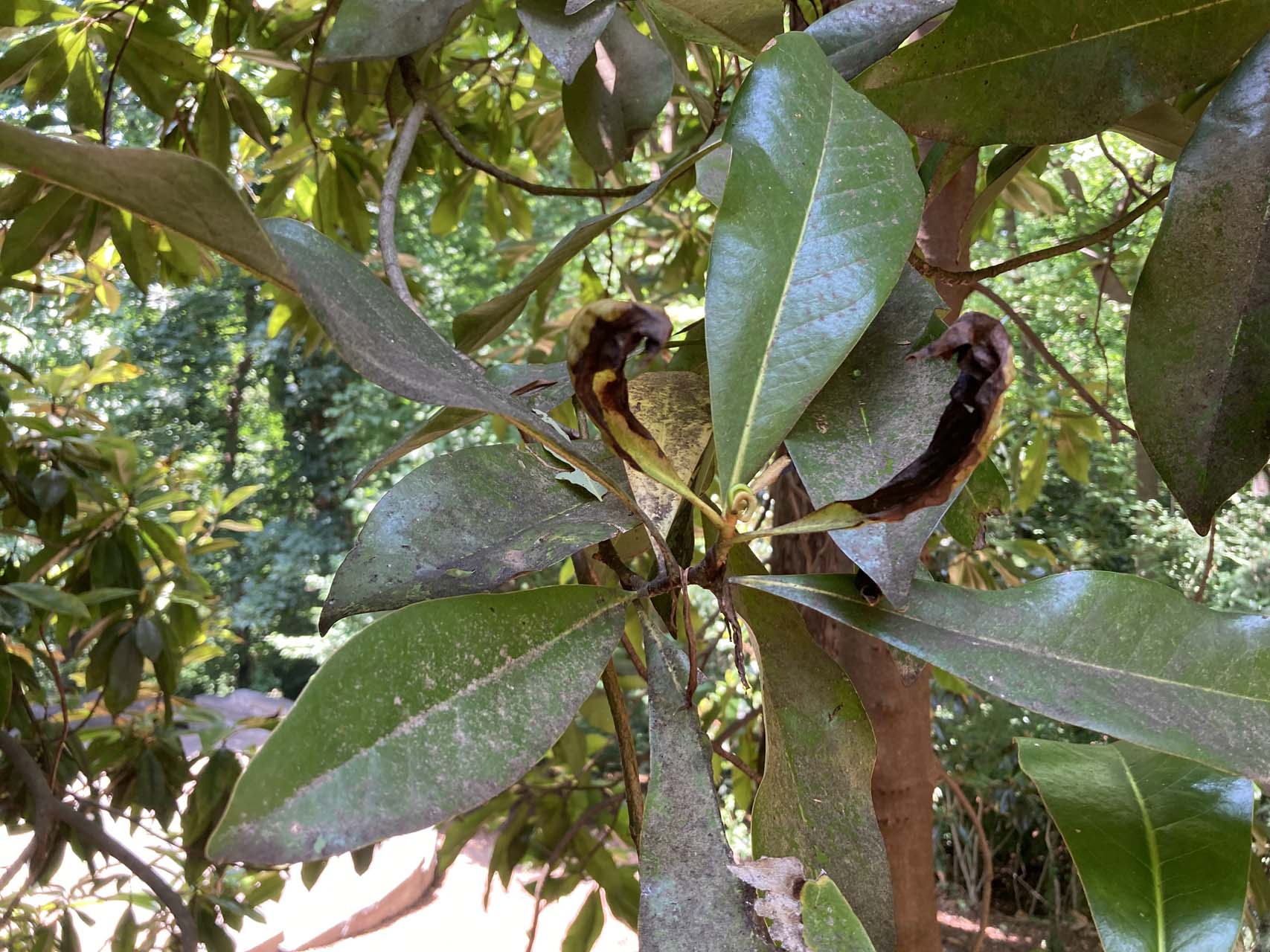Ah, Richmond. Home of the Kinda-Sorta winter. For every couple of days of below freezing lows, a handful of days with temperatures in the sixties is surely around the corner. How does our temperamental winter pattern impact your plants? And, what can you do about it?
What Happens During Winter?
Plants need many things to thrive, but the most important factors are sunlight, moisture, and good quality soil. Healthy soil ensures a stable root system with enough space for oxygen exchange, moisture uptake, and nutrient uptake. Sunlight is how plants create their primary food source, glucose (through the process of photosynthesis). Moisture is key for plant growth and development.
During dormant season, the amount of hours the sun is out lessens. Cold temperatures drive ecosystems into dormancy. Moisture varies depending on region, but due to drier air (often driven by winter winds), tends to be less available. Frozen ground reduces availability of what moisture there is to the root system for absorption into plants. This leads to desiccation in plants, which is literally the removal of moisture from an organism.
During a normal winter that lasts 3-5 months, these variables remain consistent, which means ecological behavior stays predictable. Plants go dormant, and do not produce growth. They store nutrients overwinter and reserve their energies normally put towards growth until temperatures get warmer again. Life is easy. Well, as easy as nature can be.
Here Comes the Sun…
Then we have a stretch of warm weather. You’ll see plants, sensing the end of dormancy, starting to put out growth. Insects, beneficial and pest alike, start their activity. We’ve actually seen a much higher instance of pest pressure (the level of pest activity present on landscapes) than usual due to the excessive amounts of warm spells we’ve experienced this year. When the inevitable freeze returns, the vulnerable new growth can be damaged and lead to reduced health and lowered aesthetic value long term with plants. In other words, it’s a viscous cycle.
5 Tips to Protect Your Plants This Winter
With all of that said, here are some things you can do or consider to help your valued plants!
-
It All Starts With Plant Selection
When planning your landscape, it’s good to know which plants are most susceptible to cold damage. Among them are gardenias, ligustrums, Carissa hollies, camellias, and daphnes.
-
Make Sure Your Plants are Properly Mulched
Just what proper mulching looks like is a topic for another blog post. That said, fall mulching is extremely beneficial. Mulch will help your plants retain moisture and elevate the ground temperature to help plants survive the ups and downs of our winters here in Richmond.
-
Water isn’t Just for the Growing Season!
When we’re not sweating during the sweltering heat of a Virginia summer, we often forget to drink enough water. The same goes for caring for plants during the winter. Pay attention to dry spells and water your plants as needed. Some plants, like boxwoods, love to be watered the entire year. Just be careful that you don’t water plants right before it’s about to freeze. That could potentially do more harm than good.
-
Use burlap, sheets, or tarps as covers
Covers can be helpful to trap heat and moisture for cold sensitive plants during cold spells. Be sure to remove covers when it gets warm again though!
-
Consider the use of anti-desiccants for valued plants
An anti-desiccant treatment creates a waxy layer coating on the leaves of plants, preventing them from transpiring limited water into the air and helping reduce the incidence of cold weather injuries. If you’re especially concerned about your plants or a key plant, this approach is effective. One treatment can last for up to three months!
Don’t Worry, There’s Hope!
Plants are much more resilient than we give them credit for. I’m sure you’ve noticed plants that, despite all odds, have thrived in the unpredictable conditions our home can serve up, environmentally speaking.
That said, the above tips will help your plants stay healthy and protected from our Richmond winters. As well, we’re here for your tree and shrub care related needs. Contact us today if you’re in need of a tree and shrub evaluation from one of our ISA Certified Arborists. We offer anti-desiccant treatments as well as a host of other dormant season treatments to help with the high pest pressure that many plants are vulnerable to this season.
Sincerely,
The Arborscapes Team
